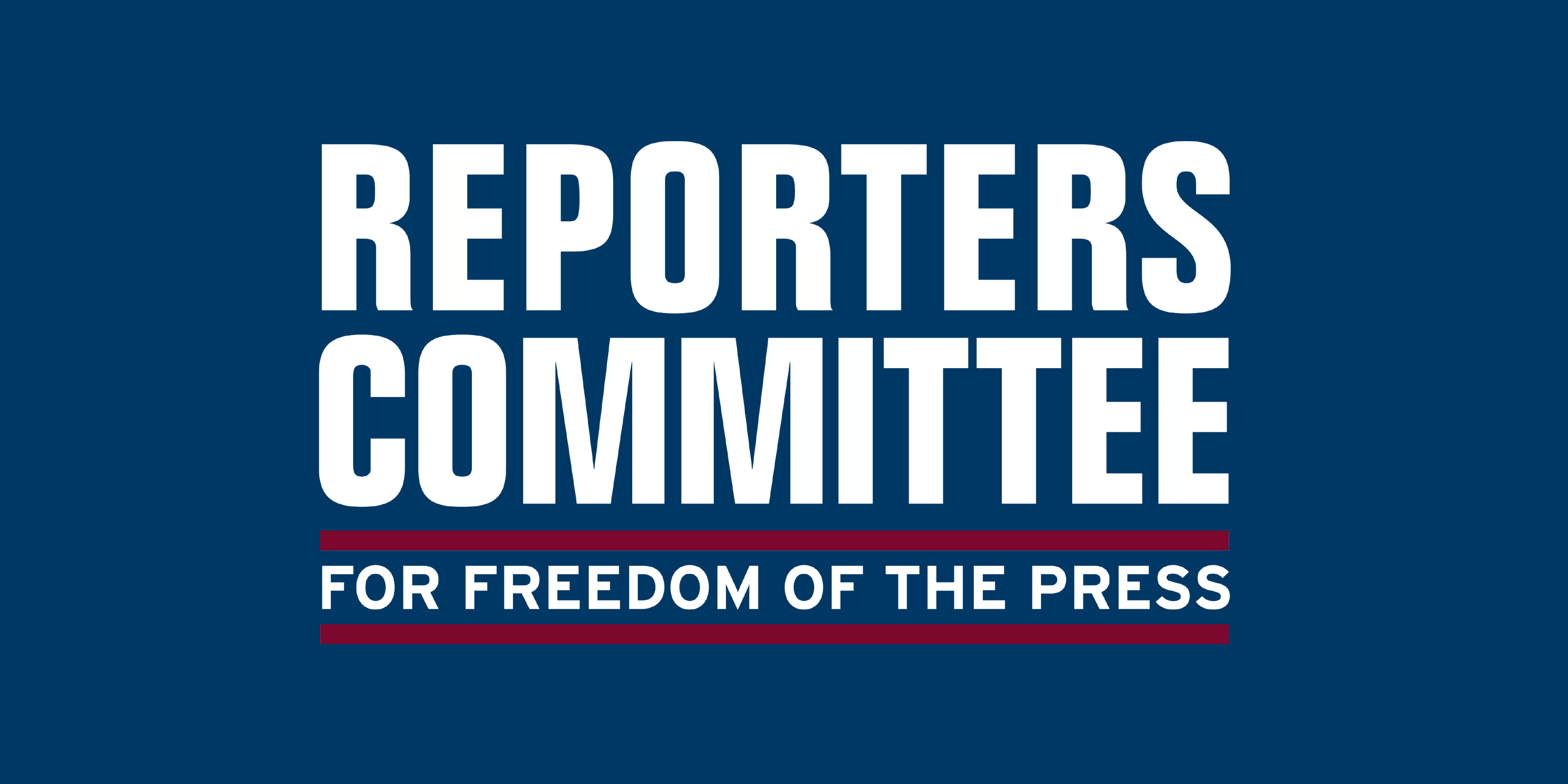Lawsuit against US Agency for Global Media leadership would bolster editorial independence at international broadcasters

Five senior executives at the U.S. Agency for Global Media who CEO Michael Pack suspended en masse in August sued the agency, Pack and his aides on Thursday to enforce the statutory “firewall” that preserves the editorial independence of the congressionally funded broadcasters administered by the USAGM.
Addressing Pack’s repeated firewall breaches has been a priority for the Reporters Committee for Freedom of the Press. Following attacks by President Trump and the White House on Voice of America, which is administered by the USAGM, the Reporters Committee sent letters to the Senate Foreign Relations and House Foreign Affairs Committees urging Congress to preserve the firewall.
The Reporters Committee, which operates a legal hotline, has served as a resource for journalists and others affected by Pack’s firewall violations. Reporters Committee attorneys have also written extensively about the need to preserve the international broadcasters’ editorial independence and have published legal analysis highlighting how Pack’s various moves since taking over at USAGM have technically violated the firewall.
The suit challenges an array of efforts to interfere with broadcaster operations, including direct editorial interference by Pack aides through investigations of alleged “bias”; Pack’s refusal to process J-1 visa renewals for foreign journalists; the mass removal of the executives themselves; and the sidelining or termination of key editorial personnel.
The lawsuit, filed by attorneys at Gibson, Dunn & Crutcher LLP, comes on the heels of a hearing by the House Committee on Foreign Affairs in late September, during which Pack refused to appear despite being subpoenaed. At that hearing, lawmakers from both parties expressed serious concern with Pack’s leadership at USAGM. The Reporters Committee echoed those concerns in a letter to the Committee on Sept. 24.
Congress established the USAGM in 2016 to replace the Broadcasting Board of Governors as the administrative body responsible for Voice of America, Radio Free Europe/Radio Liberty, Radio Free Asia, the Office of Cuba Broadcasting, the Middle East Broadcasting Networks and the Open Technology Fund. OTF is not a broadcaster but a separate nonprofit that advances internet freedom by funding censorship-circumvention technology.
While Congress centralized some powers in the CEO of USAGM in 2016, it reaffirmed the statutory firewall that requires the CEO to “respect the professional independence and integrity” of the broadcasters. The firewall has been an express legal mandate since the mid-1970s and has since been affirmed and strengthened under administrations of both parties.
According to the lawsuit, Pack — President Trump’s appointee as CEO, who took office in June — has repeatedly violated the firewall by, for instance:
- Suspending the plaintiff executives for attempting to enforce the firewall, reassigning the standards editor at VOA, and terminating the executive editor of Radio Free Asia;
- Initiating investigations by aides in the “front office” (political hires versus civil servants) into alleged “bias” in the broadcasters’ newsrooms, in stark contrast to past practice where the broadcasters would retain independent auditors to investigate standards violations; and
- Refusing, wholesale, to process J-1 visa renewals and contracts for foreign journalists, which has already forced many to leave the United States, crippled smaller language services that depend on their essential journalistic skills and has placed many in fear of having to return to home countries that may retaliate against them for their work on the public’s behalf.
The lawsuit also follows recent public statements by leadership at USAGM decrying “partisanship” at the broadcasters.
On Oct. 2, for instance, Pack issued new “Guidance on Conflicts of Interest” that offered examples of conflicts requiring journalists to recuse themselves from covering stories. The document gave the example of J-1 visa holders, who “must follow normal procedures and recuse themselves from any story involving J-1 visas.”
On Oct. 6, the USAGM released a statement citing the policies and noting “substandard journalism” at the broadcasters. The statement continued, “It is unfortunate that there is selective outrage by some members of Congress and the press at implementing federal agency policy.”
At base, the firewall is a legal mandate to ensure that the broadcasters can gather and report the news consistent with the “highest professional standards of broadcast journalism.” Accordingly, while “bias” of any stripe at the broadcasters may violate that mandate, the broadcasters themselves are responsible for policing journalistic standards within the newsroom.
As the Reporters Committee wrote in the letter to Congress in advance of the House Foreign Affairs Committee hearing in September, “interference by the CEO in editorial decision-making, even in the face of perceived ‘bias,’ is itself a firewall violation.”
The statutory firewall is the product of the long history of U.S. international broadcasting, which began formally with the launch of Voice of America during World War II to counter Nazi shortwave broadcast propaganda.
During the Cold War, a debate raged between policymakers who sought to use the broadcasters to overtly influence domestic politics behind the Iron Curtain, and others who, through experience, realized that providing “surrogate” news services to audiences starved for hard news was more effective in combating totalitarianism. Indeed, U.S. international broadcasting was at its most effective when it could report, openly and critically, about the U.S. government itself.
Regardless of ideology or party, the temptation to use U.S. international broadcasting for political ends will never go away. That’s why the firewall separating politics from the newsroom is so central to the enterprise.
The Reporters Committee regularly files friend-of-the-court briefs and its attorneys represent journalists and news organizations pro bono in court cases that involve First Amendment freedoms, the newsgathering rights of journalists and access to public information. Stay up-to-date on our work by signing up for our monthly newsletter and following us on Twitter or Instagram.